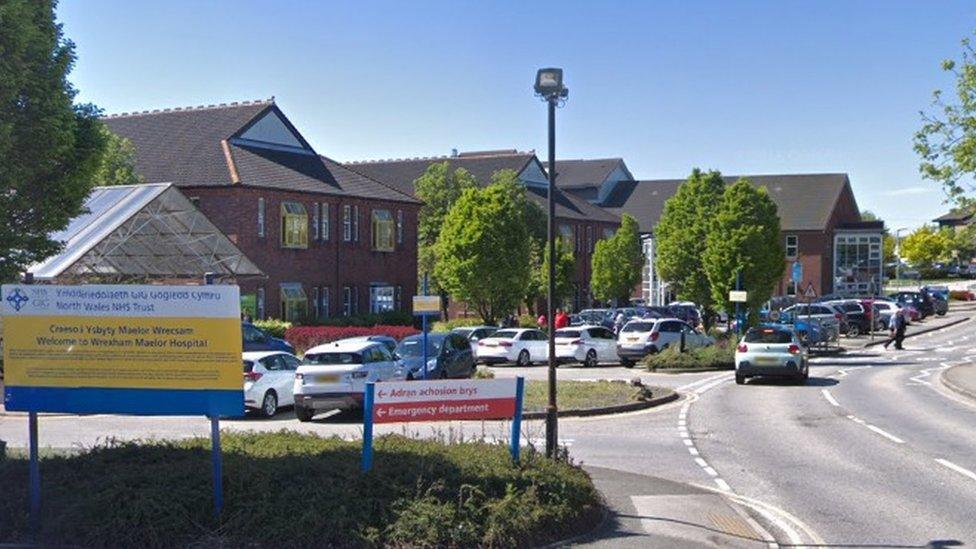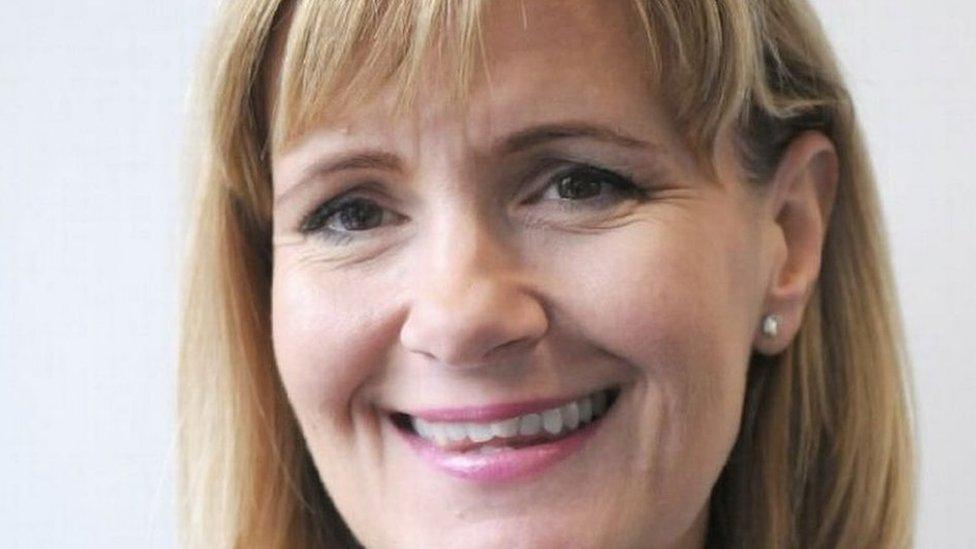Sepsis death: A&E 'should have been warned' of patient
- Published

Samantha Brousas had suffered a common cold before her condition deteriorated
Paramedics should have warned A&E staff that a severely ill woman, who later died from sepsis, was on her way to hospital, an inquest has heard.
Samantha Brousas, 49, from Gresford, near Wrexham, died on 23 February 2018, two days after being taken to Wrexham Maelor Hospital.
She had waited three hours in an ambulance before being admitted.
Consultant paramedic Duncan Robertson said the ward should have been informed under existing guidelines.
The inquest also heard from Dr Kate Clark, consultant in emergency medicine, who revealed coroners had issued a total of six "regulation 28" reports aimed at preventing future deaths involving ambulances having to queue outside hospitals in north Wales.
Mr Robertson, the regional clinical lead for the Welsh Ambulance Service Trust, referred to guidance from the Joint Royal Colleges Ambulance Liaison Committee.
"Sam should have been pre-alerted to the emergency department," he told the inquest in Ruthin.
The court previously heard from the paramedics in question, who raised questions about the efficacy of the pre-alerting process.

Wrexham Maelor Hospital was "dangerous and unsafe" because it was so busy the day Samantha Brousas came in
Paramedic Steffan Jarvis had told the court ambulance staff knew the hospital was so busy it was "dangerous and unsafe" and had not pre-alerted the hospital, despite having assessed Ms Brousas as "high-risk, critically ill".
Mr Robertson also told the hearing the number of hours lost by ambulances waiting for emergency admissions at Wrexham Maelor had seen a steady fall since Ms Brousas died.
At the time, 450-500 hours were lost per week by delays at A&E, but by the beginning of November fewer than 40 hours per week were being lost.
Solicitor Stephen Jones, representing Ms Brousas' family, called for a narrative conclusion from assistant coroner Joanne Lees.
"The tragedy in this case is that Sam's condition was recognised and yet nothing was done, and that means there were failings within the system," Mr Jones said.
But counsel for Betsi Cadwaladr University Health Board and Ambulance Trust, Dan Rogers, stressed the importance of the evidence given by independent expert witness Prof Solomon Almond.
Prof Almond had previously said Ms Brousas would "probably have survived" if she had been taken to hospital on the morning of 21 February.
But the ambulance had not been called until later that afternoon.
'Not clearly directly causal'
"Any failings or criticism you may find are not clearly directly causal in her death," Mr Rogers said.
Adjourning proceedings until 20 December, Ms Lees said she needed more time to consider the evidence before reaching a conclusion.
The inquest had previously heard Ms Brousas had waited in an ambulance for three hours outside hospital without being given antibiotics, as paramedics were unable to give her drugs.
She had had a cold over the New Year period but her symptoms had worsened, the inquest heard.
It was also told the hospital had been "under siege", with no free beds, despite 46 additional beds being opened.
Paramedics who had brought Ms Brousas to hospital with suspected sepsis said they were shocked she had not been admitted sooner.
- Published20 November 2019

- Published21 November 2019

- Published22 November 2019
